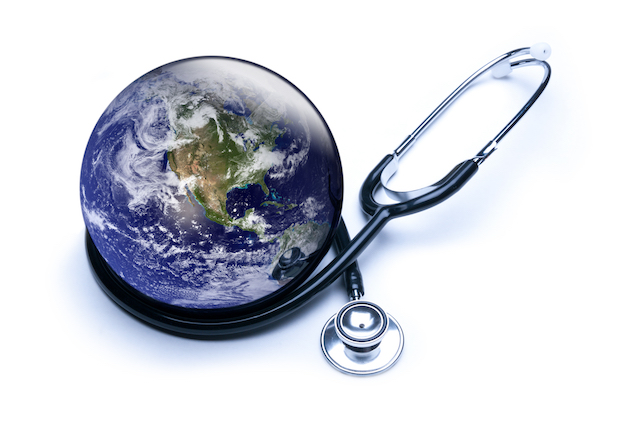
There has been a building amount of evidence suggesting that countries endure public health consequences from global conflicts. Global conflicts produce a number of risk factors for the emergence and transmission of infectious diseases such as inadequate surveillance and response systems, collapsed health systems, disruption of disease control programs, and general poor human conditions.
There are many instances that support this theory. The resurgence of Polio has been connected with country instability and global conflict for decades. The spread of AIDS in Central Africa has also been correlated with the political unrest and constant war, and 10 months after the Haiti earthquake, which was considered to be one of the largest urban disasters in history, Haiti faced a cholera outbreak. We asked physicians from 35+ countries
Are global conflicts preventing us from eradicating certain diseases?
An overwhelming 82 percent of physicians responded, ‘yes’:
“Conflict (like natural disasters) destabilize already fragile infrastructure. This is what happened in Yemen (and Haiti).” – Pediatrics, US
“The connection between political stability and eradication of the disease is directly proportional, the people in conflict lose the vaccination systems. That, together with hunger, the destruction of homes, the contaminated environment, and [lack of] sanitation makes diseases proliferate. Here in Venezuela the vaccination systems have lost continuity and many vaccines such as chicken pox, hepatitis b, pneumococcal, anti-meningococcal, and rotavirus vaccines are no longer available in this country or through the official media or the private ones. There are even people who cross the border into Colombia to get their children vaccinated.” –Pediatrics, Venezuela
“World conflicts not only generate infectious diseases, but increase… psychiatric diseases, difficult traumas to solve not only in the body but also the mind. That itself is an epidemic. The physical body has many resources, and may survive, but what comes next?” – Family Medicine, Spain
“Global conflicts prevent the eradication of diseases.… in cases of countries that war there should be a massive vaccination to the population to avoid infectious diseases such as cholera, poliomyelitis, etc. Countries should be concerned about the health of their inhabitants and not spend unnecessary money on wars but on healthcare.” – General Practice, Venezuela
“Of course they prevent eradication and not only that, they favor the occurrence of these and other diseases.” – General Practice, Mexico
“Certainly it makes it impossible to eradicate infectious diseases, as there is no adequate vaccination campaign. History teaches that long periods of peace bring widespread well-being and health with a significant decrease in child mortality and a prolonged life expectancy.” – Gastroenterology, Italy
“Unquestionably, wars and natural catastrophes worsen local health conditions and bring disease outbreaks and epidemics as a result of poor living conditions to victimize millions of civilians. Therefore, the United Nations should effectively curb such abuses and assist the Red Cross in providing health services to those in need.” – Neurology, Brazil
The poll was fielded in October of 2017. 1048 physicians responded to the poll. The margin of error for the global poll was ±3%. More information about Sermo polling methodology can be found here.
Are you a physician? Log into Sermo to weigh-in on global conversations with other doctors from around the world.














